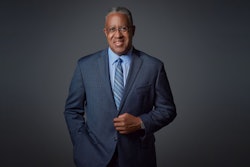 Dr. Charles Lee Isbell Jr.
Dr. Charles Lee Isbell Jr.
The appointment, announced by University of Illinois System President Tim Killeen, represents more than just a leadership transition. It marks the arrival of a scholar-administrator whose career has been defined by his efforts to democratize technology education and create pathways for underrepresented students in computing and artificial intelligence.
Isbell, currently serving as provost at the University of Wisconsin-Madison, will formally assume his new role on August 1. The 56-year-old computer scientist brings more than two decades of experience in higher education leadership to one of the nation's premier public research institutions.
What sets Isbell apart in the landscape of academic leadership is his dual expertise in cutting-edge technology and social justice advocacy. As a Fellow of both the Association for the Advancement of Artificial Intelligence and the Association for Computing Machinery, his technical credentials are impeccable. Yet it's his work as a nationally recognized advocate for broadening participation in STEM fields that may prove most transformative for Illinois.
"His efforts to create more inclusive academic pathways have influenced national conversations on the importance of making a way for all to access, contribute to and benefit from technology education," the university noted in announcing his appointment, highlighting work that has garnered attention from major national publications.
This focus on inclusion comes at a critical time for higher education, as universities nationwide grapple with questions of access, affordability, and representation in rapidly evolving technological fields. Isbell's approach has been to build bridges rather than barriers, recognizing that the future of computing depends on drawing talent from all corners of society.
Isbell's innovative approach to education was perhaps most visible during his tenure at the Georgia Institute of Technology, where he spent 20 years climbing the academic ranks. As dean of the College of Computing, he helped transform the program into one of the largest and most diverse computing programs in the nation—a testament to his ability to scale inclusive excellence.














